Goldcrest Films

If you like this company, let us know!
Foundation date 1 january 1977
Goldcrest Films is a British film production company founded by Jake Eberts in January 1977. It enjoyed great success in the 1980s with films such as Local Hero (1983), The Killing Fields (1984) and Hope and Glory (1987) mostly produced by David Puttnam on modest budgets. The company also benefited from the new investment of Channel 4 in film production. The company won two Academy Awards for Best Picture, for Chariots of Fire in 1981 and Gandhi in 1982. After these initial successes the company backed more expensive productions with established Hollywood stars that often ran over schedule and budget culminating in Revolution, The Mission (1986) and Absolute Beginners that all turned out to be box office flops.
In recent years, Goldcrest Films has relaunched.
Best films
Filmography of Goldcrest Films (34 films)
Production
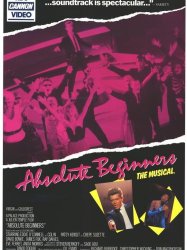
Absolute Beginners (1986)
, 1h48Directed by Julien Temple
Origin United-kingdom
Genres Drama, Fantasy, Musical, Romance
Themes Films about music and musicians, Musical films
Actors Patsy Kensit, David Bowie, James Fox, Mandy Rice-Davies, Edward Tudor-Pole, Bruce Payne
The film takes place in 1958, a time in which pop culture is transforming from 1950s jazz and early rock to a new generation on the verge of the 1960s. London is post-World War II, but pre-Beatles/Stones. The storyline incorporates elements of the 1958 Notting Hill race riots.
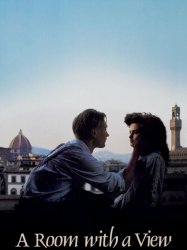
A Room with a View (1986)
, 1h57Directed by James Ivory
Origin United-kingdom
Genres Drama, Comedy-drama, Romance
Actors Maggie Smith, Helena Bonham Carter, Denholm Elliott, Julian Sands, Simon Callow, Daniel Day-Lewis
Miss Lucy Honeychurch is from an English village in Surrey and is on holiday in Italy with her much older cousin and chaperone, Charlotte Bartlett. Charlotte is conventionally English, with an extremely restrictive personality and tends to get her way by expressing her emotions to manipulate others. Lucy has been brought up in an upper-middle class but loving and easygoing household, and had fewer inhibitions, which creates a strong tension between herself and Charlotte. They are in contrast with the more free-thinking and free-spirited backdrop of Italy. At a small pensione Lucy meets such people as Reverend Beebe, the two Miss Alans, and the author Miss Eleanor Lavish, but most importantly, the nonconformist Mr. Emerson and his handsome, philosophical son, George, who becomes friends with Charlotte. These men, although also English, represent the forward-thinking ideals of the turn-of-the-century, seeking to leave behind the repression and caution that was the norm in Victorian times. At first, the Emersons seem strange and unfamiliar to Lucy and Charlotte. They seem sincere but unaware of finer upper class Victorian manners. Mr. Emerson offers to switch rooms with the women, who desire a room with a view. Charlotte is offended, believing him to be rude and tactless for what she perceives to be indebting them with his offer. As Lucy begins her journey to maturity, she finds herself drawn to George due to his mysterious thinking and readily expressed emotions.
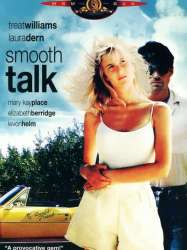
Smooth Talk (1986)
, 1h32Directed by Joyce Chopra
Origin USA
Genres Drama, Thriller, Horror, Romance
Actors Laura Dern, Treat Williams, Elizabeth Berridge, Mary Kay Place, William Ragsdale, Levon Helm
Connie Wyatt is a restless 15-year-old who is anxious to explore the pleasures of her sexual awakening. Before she enters her sophomore year in high school, she spends the summer moping around her family farm house. She suffers from her mother's put-downs, while hearing nothing but praise for her older sister, June. Her father somehow manages to float around the family tensions. She also helps paint the cottage, just as her mother constantly demands her to.
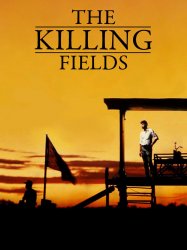
The Killing Fields (1984)
, 2h18Directed by Roland Joffé
Origin United-kingdom
Genres Drama, War, Biography, Historical
Themes Films about writers, Films about journalists, Politique, Political films
Actors Sam Waterston, John Malkovich, Haing S. Ngor, Julian Sands, Craig T. Nelson, Spalding Gray
In the Cambodian capital, Phnom Penh during May 1973, the Cambodian national army is fighting a civil war with the Khmer Rouge, a result of the Vietnam War overspilling that country’s borders. Dith Pran, a Cambodian journalist and interpreter for The New York Times, awaits the arrival of reporter Sydney Schanberg at the city's airport but leaves suddenly. Schanberg takes a cab to his hotel where he meets up with Al Rockoff (John Malkovich). Pran meets Schanberg later and tells him that an incident has occurred in a town, Neak Leung; allegedly, an American B-52 has bombed the town.

Another Country (1984)
, 1h30Directed by Marek Kanievska
Origin United-kingdom
Genres Drama, Comedy-drama, Musical theatre, Romance
Themes Films about sexuality, Théâtre, LGBT-related films, Films based on plays, LGBT-related films, LGBT-related film
Actors Rupert Everett, Colin Firth, Cary Elwes, Robert Addie, Rupert Wainwright, Anna Massey
The setting is a 1930s Eton-esque public school, where Guy Bennett (Rupert Everett) and Tommy Judd (Colin Firth) are friends because they are both outsiders in their own ways. Bennett is openly gay. Judd is a Marxist.

The Dresser (1983)
, 1h58Directed by Peter Yates
Origin United-kingdom
Genres Drama, Comedy-drama
Themes Films about sexuality, Films about television, Théâtre, LGBT-related films, Films based on plays, LGBT-related films, LGBT-related film
Actors Albert Finney, Tom Courtenay, Eileen Atkins, Michael Gough, Edward Fox, John Sharp
The Dresser opens with a performance of King Lear at a regional theatre in England during the last days of World War II. In the title role is an ageing, once-famous Shakespearean actor identified to us only as "Sir" (Albert Finney). He is of the old, bombastic school of British acting, full of grand gestures and fine oratory. As the curtain comes down on the last act, and as the actors line up for their curtain call, Sir lectures them on the mistakes they've made during the performance, showing us that he is the leader of this travelling band of actors bringing Shakespeare to the provinces during wartime.

The Ploughman's Lunch (1983)
, 1h47Directed by Richard Eyre
Origin United-kingdom
Genres Drama
Actors Jonathan Pryce, Tim Curry, Rosemary Harris, Frank Finlay, David de Keyser, Bill Paterson
James Penfield (Pryce) is an ambitious London-based BBC radio reporter, from humble origins but Oxford-educated. He is commissioned to write a book on the Suez Crisis and undertakes this commission, claiming not to be a socialist, at the same time as the 1982 Falklands War is starting to dominate the British media.

Local Hero (1983)
, 1h50Directed by Bill Forsyth
Origin United-kingdom
Genres Drama, Comedy, Comedy-drama
Actors Peter Riegert, Burt Lancaster, Denis Lawson, Fulton Mackay, Peter Capaldi, Rikki Fulton
"Mac" MacIntyre (Peter Riegert) is a typical 1980s hot-shot executive working for Knox Oil and Gas in Houston, Texas. The eccentric chief of the company, Felix Happer (Burt Lancaster), chooses to send him (largely because his surname sounds Scottish) to Scotland to acquire the village of Ferness to make way for a refinery. Mac (who is actually of Hungarian extraction) is a little apprehensive about his assignment, complaining to a co-worker that he would much rather take care of business over the phone and via telex machines. Happer, an avid astronomy buff, tells Mac to watch the sky, especially around the constellation Virgo, and to notify him immediately if he sees anything unusual.

Gandhi (1982)
, 3h11Directed by Richard Attenborough
Origin United-kingdom
Genres Drama, Biography, Adventure, Historical
Themes Films set in Africa, Films about racism
Actors Ben Kingsley, Candice Bergen, Martin Sheen, Edward Fox, Roshan Seth, John Gielgud
The screenplay of Gandhi is available as a published book. The film opens with a statement from the filmmakers explaining their approach to the problem of filming Gandhi's complex life story:

Pink Floyd: The Wall (1982)
, 1h35Directed by Alan Parker, Gerald Scarfe
Origin United-kingdom
Genres Drama, Musical
Themes Medical-themed films, Films about music and musicians, Psychologie, Films about racism, Films about sexuality, Musical films, Films about psychiatry, Political films
Actors Bob Geldof, Christine Hargreaves, Eleanor David, Bob Hoskins, Michael Ensign, John Scott Martin
Pink, the protagonist, is a rock star, one of several reasons behind his apparent depressive and detached emotional state. He is first seen in an unkempt hotel room, motionless and expressionless, watching television. The opening music is the Vera Lynn recording of "The Little Boy that Santa Claus Forgot". It is revealed that Pink's father, a British soldier, was killed in action while defending the Anzio bridgehead during World War II, in Pink's infancy.
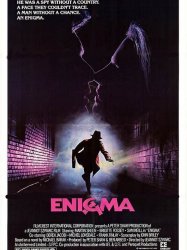
Enigma (1982)
, 1h38Directed by Jeannot Szwarc
Origin France
Genres Drama, Thriller, Action, Adventure, Spy
Themes Spy films, Politique, Political films
Actors Martin Sheen, Sam Neill, Brigitte Fossey, Derek Jacobi, Michael Lonsdale, Michel Auclair
Alex Holbeck (Martin Sheen) is recruited as a CIA agent. He is sent to East Berlin on a mission to steal an Enigma code scrambler. This is part of an attempt to stop the Russian assassination of five Soviet dissidents which is planned for Christmas Day. What Alex doesn't know is that the CIA already has a code scrambler. By stealing the scrambler in Berlin, they are trying to convince the Russians that they don't have it.
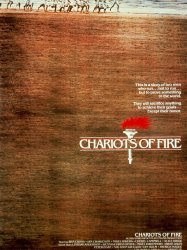
Chariots of Fire (1981)
, 1h59Directed by Hugh Hudson
Origin United-kingdom
Genres Drama, Biography, Comedy-drama, Historical
Themes Films about religion, Sports films, Athletics films, Films about the Olympic Games, Films about Jews and Judaism, Children's films
Actors Ben Cross, Ian Charleson, Nigel Havers, Cheryl Campbell, Alice Krige, Ian Holm
In 1919, Harold Abrahams (Ben Cross) enters the University of Cambridge, where he experiences anti-Semitism from the staff, but enjoys participating in the Gilbert and Sullivan club. He becomes the first person to ever complete the Trinity Great Court Run – running around the college courtyard in the time it takes for the clock to strike 12. Abrahams achieves an undefeated string of victories in various national running competitions. Although focused on his running, he falls in love with a leading Gilbert and Sullivan soprano, Sybil (Alice Krige).

Escape from New York (1981)
, 1h39Directed by John Carpenter
Origin USA
Genres Science fiction, Thriller, Social science fiction, Action, Adventure, Crime
Themes Post-apocalyptic films, Prison films, Films about religion, Films set in the future, Political films, Dystopian films, Disaster films
Actors Kurt Russell, Lee Van Cleef, Ernest Borgnine, Donald Pleasence, Isaac Hayes, Harry Dean Stanton
In 1988, following a 400% increase in crime, the United States Government has evacuated Manhattan and turned the island into a giant maximum-security prison in which all inmates serve a life sentence. A 50-foot (15 m) containment wall surrounds the island and routes out of Manhattan have been dismantled or mined. Armed helicopters patrol the rivers and harbor.
Distribution
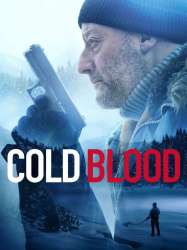
Cold Blood (2019)
, 1h31Directed by Frédéric Petitjean
Origin France
Genres Thriller, Action
Actors Jean Reno, Sarah Lind, Joe Anderson, David Gyasi, Samantha Bond
Henry est un tueur à gages à la retraite. Recherché, il mène aujourd'hui une vie solitaire au bord d'un lac au Nord des États-Unis. Un jour, il recueille dans son chalet une jeune femme ayant subi un grave accident de motoneige. Il va ensuite découvrir qu'elle est elle aussi recherchée. Celui qui a jadis appris à tuer va devoir apprendre à protéger quelqu'un.

Pussy Riot: A Punk Prayer (2013)
, 1h28Origin Russie
Genres Documentary, Musical
Themes Feminist films, Films about music and musicians, Politique, Documentary films about music and musicians, Documentaire sur une personnalité, Musical films, Political films
Actors Madonna, Yoko Ono
 Connection
Connection

